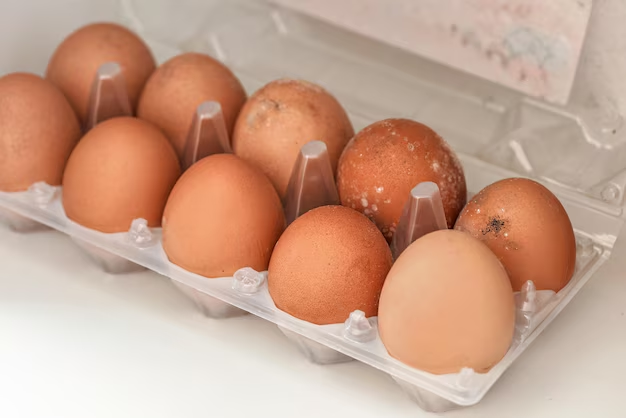How Fresh Are Your Eggs? Understanding Refrigeration and Shelf Life
Fresh eggs are a kitchen staple, but many are left wondering about the best way to store them for optimal longevity. The question often arises: How long can eggs remain good in the refrigerator? Let’s crack open this query with essential insights into egg storage, best practices for shelf life, and techniques to help you make the most of this versatile ingredient.
🥚 Why Proper Egg Storage Matters
Proper storage is crucial for maintaining the quality, safety, and flavor of eggs. Given that eggs are delicate and nutrient-rich, they can become breeding grounds for bacteria if mishandled, particularly Salmonella, which poses health risks.
- Freshness: The fresher the egg, the better the taste and texture, particularly for uses like poaching or whipping into meringues.
- Safety: Proper refrigeration slows bacterial growth, maintaining eggs as a safe food choice.
- Longevity: Knowing how to extend the shelf life of eggs can aid in meal planning and reduce food waste.
🥶 Refrigeration: Key Considerations
How Long Are Eggs Good in the Refrigerator?
In most instances, eggs can last 3 to 5 weeks when stored in the coldest part of your refrigerator. Many home cooks find that eggs often remain safe even beyond this period, but there are a few factors to consider:
- Sell-By Dates: These dates indicate freshness, but eggs are often safe for consumption for a week or two after this date if stored correctly.
- Julian Dates: This three-digit number found on egg cartons indicates the packaging date, with January 1 as 001 and December 31 as 365. It’s a useful tool for tracking the true age of your eggs.
Best Practices for Egg Storage
- Temperature Control: Store eggs at temperatures below 40°F (4°C). Consistency matters—temperature fluctuations can promote spoilage.
- Original Carton: Keep eggs in their original carton to protect them from absorbing strong odors and flavors from other foods.
- Positioning: Place eggs on an interior shelf in the fridge where the temperature remains more constant, rather than in the door where it can fluctuate.
🥚 Determining Egg Freshness
Simple Freshness Tests
Water Test: Place an egg in a bowl of water. Fresh eggs will sink and lay flat. If they stand upright or float, they are older but may still be usable in fully cooked recipes.
Shake Test: Shake the egg gently next to your ear. A fresh egg will make little to no sound, while an older egg will have more movement and a sloshing sound.
🍳 Beyond the Basics: Common Questions About Eggs
Can Eggs Be Frozen?
Yes, eggs can be frozen, but not in their shells. For best results:
- Whole Eggs: Beat until just blended and freeze.
- Whites and Yolks: Freeze separately; add sugar or salt to yolks depending on intended use to prevent gelling.
Can Boiled Eggs Be Stored in the Fridge?
Absolutely, boiled eggs can be refrigerated for up to one week. Store peeled or unpeeled in a covered container to maintain freshness and prevent odor absorption.
🍴 Tips for Reducing Waste and Maximizing Use
Having a strategy for using eggs can help reduce waste and ensure none go bad without good use. Here are some suggestions:
- Meal Planning: Plan meals that include eggs as a key ingredient. Quiches, omelets, and frittatas are excellent ways to use multiple eggs at once.
- Preservation: Hard-boiling some of your older eggs is a way to extend their usability.
- Donations and Sharing: For an abundant supply, consider sharing with neighbors or donating to a food bank.
📋 Quick Reference Summary
Here’s a handy overview to guide your egg storage practices:
| Tip | Details |
|---|---|
| 🕑 Refrigeration Time | Eggs typically last 3-5 weeks in the fridge |
| ❄️ Freezing Options | Beat whole eggs, or separate whites and yolks, then freeze appropriately |
| 🌊 Freshness Test | Use the water and shake tests to assess egg age and usability |
| 🥚 Storage Location | Store eggs in their original carton on a fridge shelf |
| 📅 Check Dates | Use sell-by and Julian dates for freshness verification |
| 🍳 Utilization Methods | Incorporate eggs into various dishes or hard-boil to extend life |
🥗 Unlocking the Versatility of Eggs
Eggs bring unmatched diversity to any kitchen, offering more uses and nutritional benefits than many realize. Whether incorporated into breakfast, lunch, dinner, or dessert, knowing how to store and assess the quality of eggs ensures that they remain both safe and delicious.
Understanding the simple practices that can maintain egg freshness is an important life skill that benefits both health and culinary creativity. With these guidelines, navigating the world of egg storage becomes an egg-citing experience! 🥚

